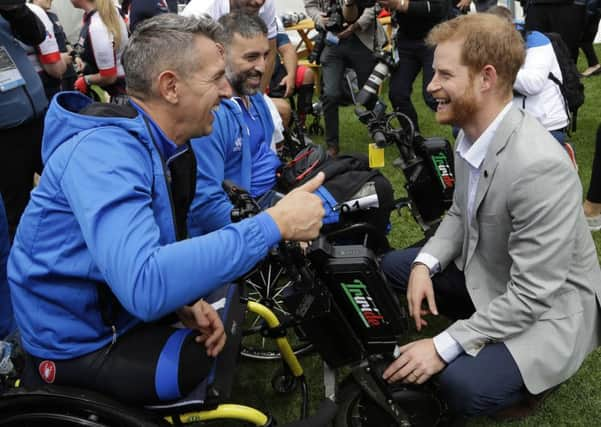Leader comment: Heed the Prince's call on wounded veterans


Inevitably, coverage of the visit to Australia by the Duke and Duchess of Sussex has been dominated by news that the couple’s first child is due next spring.
But this cannot be allowed to overshadow a key reason for their trip. On Saturday, Prince Harry opened the latest in his Invictus Games tournaments, in which sick and injured armed forces personnel and veterans from around the world compete across a range of athletic disciplines.
Advertisement
Hide AdAdvertisement
Hide AdThe Prince is to be commended for his creation of and ongoing commitment to these games, which do much more than provide activity for participants. The events – as compelling as any major sporting tournament – remind us in the starkest possible way of the cost many pay in the service of their country.
During his opening ceremony speech in Sydney on Saturday night, Prince Harry urged the public to honour the current generation of serving military personnel with the same respect they afford veterans of both world wars.
This was a timely intervention. As a society we have to do better when it comes to our treatment of those who serve, often under traumatic, life-changing circumstances.
Yesterday, the Ministry of Defence announced a study into the cause of death among Iraq and Afghanistan veterans. The study comes after a surge in the reporting of mental health problems among troops and veterans – getting to the bottom of this crisis is a key step on the way to properly addressing it.
It was reported yesterday that 42 current and former members of the armed forces have taken their own lives since January. This deeply distressing statistic underlines just how serious a problem this is.
Without wishing to pre-empt the findings of the study, it is clear that many of those most serious affected by mental health problems have served in either Iraq or Afghanistan. War may be something most of us think of in the abstract; for these men and women, it has left deep scars, some of which cannot be seen.
We have come a long way as a society when it comes to talking about mental health but, still, many forces veterans are said to be unwilling to seek help for mental health issues. We characterise members of the armed forces as unstoppably tough, as men and women of iron. But the ever more apparent reality is that some of them are among the most vulnerable people in society.